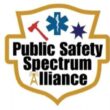Rebanding promises to be a taxing proposition
LAS VEGAS–Representatives for 800 MHz licensees being rebanded as part of Wave 1 may want to make an extra effort to get their tax returns finished early this year, as they could be too distracted on April 15 to be bothered with last-minute filings to Uncle Sam.
That’s because the Transition Administrator (TA) team overseeing the 800 MHz rebanding effort is expected to release its much-anticipated guidelines next Friday. These guidelines are supposed to clarify the steps the first wave of licensees must take to make the complicated spectrum reconfiguration happen.
Details of the TA document have been the source of rampant speculation all week at the IWCE show in Las Vegas, but don’t be surprised if licensees who just filed their tax returns feel a sense of déjà vu. The parallels between rebanding and completing tax returns are numerous.
More important than the coincidental April 15 date, both processes are necessary evils that can stretch one’s patience. All but simplest cases can sap resources to the point that many will choose to buy software, pay consultants and retain legal representation to help get the job done in a timely and accurate manner.
Outsourcing is particularly attractive in the case of an audit, which TA representatives have indicated will be part of rebanding. Not only can outside help assist in preparation for an audit, the TA has acknowledged that it will be much easier to justify the expense of paying a contractor to do a specific rebanding task than to it will be to account for the time of an internal salaried employee. Those who have tried to claim a home office as an exemption instead of maintaining an external office space can empathize.
For those with cash-flow problems, there will be a way to get at least some of the money ultimately due to them up front, so the funds can be used to offset near-term expenses. TA officials say the procedures for requesting these planning funds will be explained in the TA document next week.
And regardless of the strategies pursued, the key to financial success in the process is documentation. Like exemptions claimed on a tax return, licensees should be prepared to provide a paper trail to back up all expenses claimed for reimbursement, said Glen Nash, acting second vice president of the Association of Public-Safety Communications Officers (APCO).
“The three most important things a licensee should do is keep records, keep records and keep records,” Nash said.
What should be recorded? Everything related to the rebanding process, according to Nash.
This encompasses more than the cost associated with the hands-on work of retuning equipment. Make sure the “hidden” costs of the rebanding process also are noted so that they can be paid by Nextel, Nash advises. After all, this process is not supposed to cost licensees anything. And time has value, particularly for people who already have their hands full trying to maintain a radio network–a task they aren’t working on when spending their time on rebanding issues.
For example, Nash says note all participants and the length of a planning meeting to determine which rebanding tasks should be outsourced and which should be done in-house. Even if a task is outsourced, licensees should make sure the time their personnel spend coordinating activities with the contractor is noted. If personnel have to travel for a rebanding task–even if it just to unlock the door so a contractor can gain access to radios at a remote site–the time spent and related transit costs should be noted.
The key is to establish benchmark monetary values for each person’s time, Nash said. This includes an hourly “rate”–even for salaried employees–that includes the costs of benefits, so that the time spent on rebanding can be monetized and reimbursed by Nextel.
Of course, Nash is not a spokesman for the TA team, which has carefully avoided making blanket commitments that it will approve payment for anything that’s even remotely questionable. And an FCC official bristled at the notion that educational costs–for example, informing users about the rebanding process, attending 800 MHz road shows or even attending a show like IWCE–should be reimbursed.
But there was no denial, either. And unless the TA guidelines stipulate otherwise, Nash said he believes any rebanding-related costs incurred since the FCC order was approved is fair game.
“I’d claim it all,” Nash said. “The worst they can do is say, ‘No.'”
E-mail me at [email protected].
















